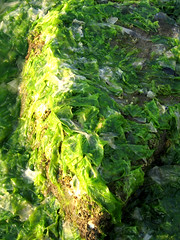Shrimp prices have hit a record high in the USA and Europe as a knock on effect from early mortality syndrome (EMS) in China and southeast Asia, reports the Bangkok Post.
EMS was first spotted in China in 2009 and has since spread to Malaysia, Vietnam and Thailand. These four countries accounted for 70 percent of global shrimp exports in 2011 according to the FAO.
Norway's leading environment agency, Bellona and and seafood manufacturer Lerøy Seafood Group have joined forces to create a new aquaculture company.
Ocean Forest, which was announced at AquaNor in August 2013, aims to create large scale production of sustainable seafood biomass and energy along the Norwegian coast.
One of the focuses will be IMTA, specifically, growing macroalgae alongside salmon in a bid reduce CO2 emissions.
The Marine Stewardship Council (MSC) has joined forces with the BalticSea2020 foundation to launch its programme in Poland. Over the next three years, the MSC will help build a more sustainable fishing industry in the region, and provide Polish shoppers more opportunities to choose ecolabelled seafood.
With more than 100,000 tonnes of annual catches, Poland is an important fishing nation on the Baltic Sea coast. The country also hosts many processing facilities that provide markets worldwide with fish and seafood products. “The MSC programme is helping fisheries worldwide improve their performance, to the benefit of the marine environment. With the BalticSea2020 foundation’s generous support we can now deepen our engagement with this vital sector in Poland, and with our partners, help promote the continuing transformation of the European seafood market to a sustainable basis,” said Camiel Derichs, MSC European director.
 |
| Macroalgae bloom (Photo credit: eutrophication&hypoxia) |






















